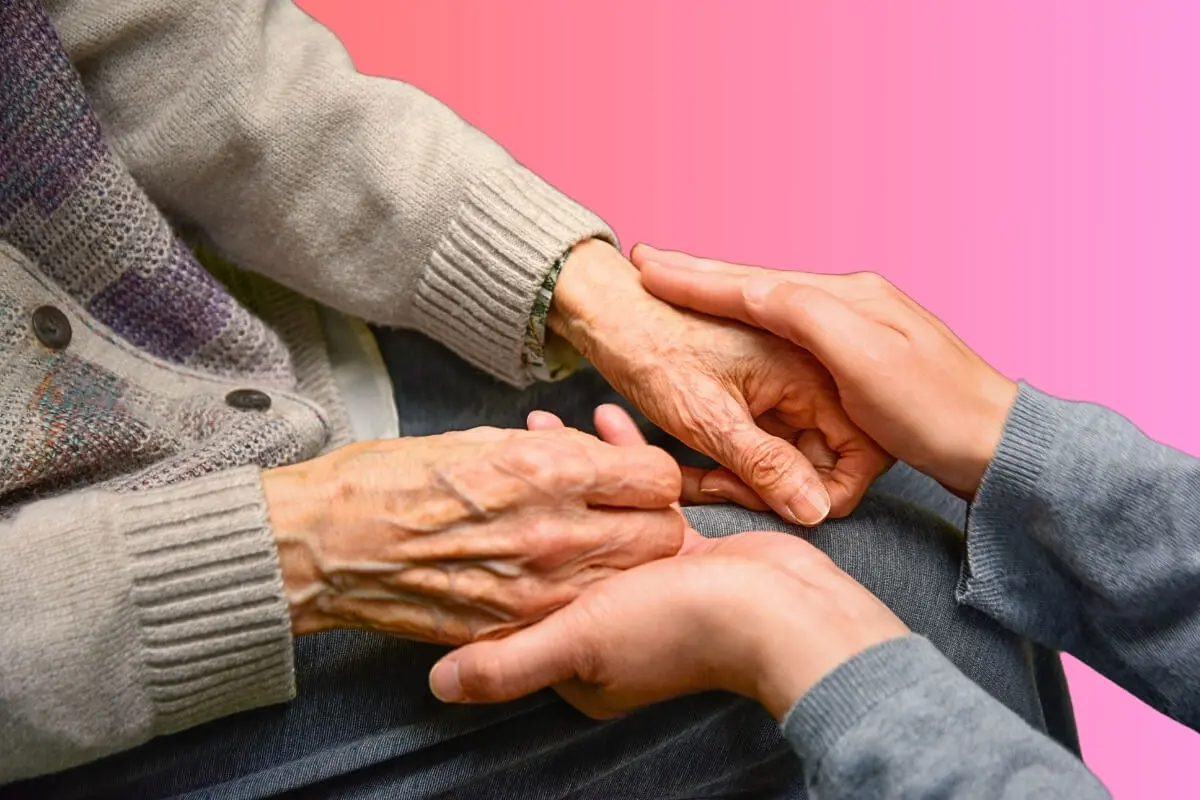Tips for a Palliative Caregiver
As a caregiver for a family member or loved one, navigating the complexities of palliative care can be one of the more draining and difficult things you'll experience. But the situation is not hopeless. With the right guidance and information, you can successfully and peacefully guide your loved one through this trying journey.
In this article, we'll explore what palliative care is, its symptoms and treatment options, and offer practical tips on how to care for someone with this condition.
What Is Palliative Care?
Palliative care is a medical approach that focuses on improving the quality of life for patients living with serious illnesses. It's not just about managing pain, but also addressing physical, emotional, and spiritual needs.
Patients with conditions like cancer, heart disease, or neurological disorders often require palliative care to improve their symptoms and enhance their overall well-being.
When we were handed pamphlets about palliative care versus hospice after my Dad declined further treatement for his cancer, I remember thinking—wait, which one is this? Are we preparing for end-of-life or not? The information was confusing, and part of me didn’t even want to know. We had endured 15 years of his cancer battle already. Looking back, I wish I had connected with others who had gone through caregiving during cancer—people who could offer both the information and the emotional support I really needed.
- Nicole àB.
Issues your loved one may be facing
Symptoms associated with people receiving palliative care run the entire gamut of pain and discomfort. Some common issues include:
- Chronic pain
- Fatigue
- Shortness of breath
- Nausea and vomiting
- Loss of appetite
- Constipation
- Incontinence
- Difficulty swallowing
- Insomnia or disrupted sleep
- Anxiety and depression
- Delirium or confusion
- Cognitive decline
- Emotional distress
- Spiritual distress
- Mobility loss
- Pressure sores or skin breakdown
- Swelling (edema)
- Difficulty communicating
- Social isolation
What type of treatment are they receiving?
Palliative care is typically recommended by a healthcare provider after a patient's condition has progressed. Treatment options may include medications, physical therapy, or lifestyle changes.
What to Expect
As a caregiver, you can expect palliative care to have a significant impact on your loved one's daily life. Common issues you'll help them face include:
- Managing pain and symptoms
- Adapting to new treatment plans
- Coping with emotional and psychological changes
Caregiver challenges of Palliative Care
Palliative care may test your patience and require understanding and flexibility. On your caregiver journey, you may experience:
- Emotional exhaustion
- Social isolation
- Financial strain
- Anticipatory grief
All of these issues (and others) are normal. It's important to give yourself room to experience a wide range of emotions.
A loved one in palliative care may be in a very advanced state of disease or discomfort. Allow yourself to grieve while they’re still here. Anticipatory grief is real and valid. It's completely normal to feel the loss of who your loved one once was.
In Their Shoes
Imagine knowing that your illness won’t be cured, and that time has taken on a new shape. You’re not giving up—but shifting focus. From fighting the disease to preserving comfort. From fixing to feeling. Pain relief, calm breath, restful sleep—these become your priorities now. You might still hope for more time, more memories, more connection—but you also crave peace, honesty, and dignity. You notice how people speak around you instead of to you, or how they look at your chart more than your face. But you’re still here. Still present. Still wanting to be treated as a whole person—not a prognosis. Some days are filled with gratitude, others with fear or grief. But you want your voice to matter. To laugh when you can. To be touched gently, spoken to kindly, and remembered for more than what you’re going through. In this tender stage, what matters most isn’t more days—it’s more meaning in the days you have.
Empathy and Understanding
Palliative care is not just about managing symptoms; it's also about addressing the emotional and spiritual needs of patients. By being empathetic and understanding, you can help your loved one find peace and feel a sense of control over their life.
Setting Goals
As a caregiver, setting goals with your loved one is crucial to ensure their quality of life remains high. Consider:
- Short-term goals (e.g., managing pain or fatigue)
- Long-term goals (e.g., maintaining independence or improving relationships)
Goal-Setting Tips
- To set effective goals, follow these steps:
- Identify priorities and concerns
- Involve your loved one in the goal-setting process
- Establish clear objectives and deadlines
- Monitor progress and adjust as needed
When it comes to navigating palliative care, prioritize comfort over productivity — less doing, more being.
High-Level Plan
To provide optimal support for your loved one in palliative care, consider the following high-level plan:
1. Assess and manage symptoms: Focus on pain management, fatigue, and other common symptoms.
2. Develop a treatment plan: Collaborate with healthcare providers to create a personalized plan.
3. Support emotional and psychological well-being: Offer empathy, understanding, and encouragement.
4. Address lifestyle changes: Adapt daily routines and habits to accommodate new needs.
Online Resources for Caregivers
Navigating the caregiving journey is challenging, but numerous online resources offer support:
- National Hospice and Palliative Care Organization (NHPCO): Provides education, advocacy, and resources for caregivers.
- Join the community at HeroGeneration for free and get access to caregivers like you

